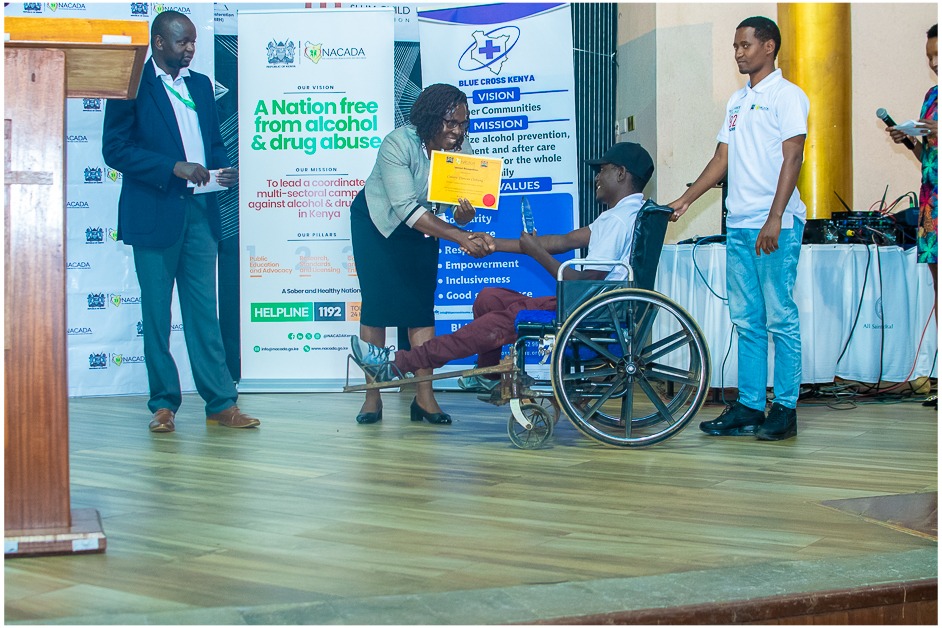
The National Authority for the Campaign Against Alcohol and Drug Abuse has announced the winners of the National Essay Writing Competition for high schools, an initiative Nacada said was to engage students in critical discussion on substance use prevention.
In a statement, Nacada said the competition which attracted 410 participants from 30 counties, saw 301 girls and 109 boys submit essays exploring various thematic areas related to drug and alcohol abuse prevention.
Winners of the competition and their teachers were recognized during the just concluded National Substance Use Prevention Week held in Nairobi.
"The competition provided a platform for students to share their insights and recommendations on tackling drug abuse in schools," Nacada said.
"The thematic areas included strategies for avoiding alcohol and drug abuse, the influence of social media on substance use, youth empowerment, the role of parents in prevention, creating safe school environments, supporting peers struggling with addiction, and Kiswahili essays."
Ivanka Blessing Odera from Moi Girls Isinya School emerged as the overall winner in the English category, with Vallary Racheal from St. Mary’s Mumias Girls High School and Wesley Lambaric Mmbaya from Njiiri School securing second and third positions, respectively.
In the Kiswahili category, Rhoda Kanoti from St. Mary’s Girls Igoji took the top spot, followed by Maryanne Wangeci Wambugu from Birithia Girls Secondary School and Joy Chepchumba from Kipsigis Girls High School.
The competition also featured a special category for students with disabilities, with Odiero Dancan Ochieng from Joyland Special Secondary School in Kisumu emerging as the best, while Okumu Sarah Mical came in second.
Nacada CEO Anthony Omerikwa commended the participants for their thought-provoking essays, which he described as a testament to the power of youth in driving change.
“These young visionaries have penned essays that challenge norms, inspire action, and ignite hope for a drug-free Kenya. Their creativity and dedication remind us that prevention is power and that young people are key to achieving a healthier, safer society,” Omerikwa said.
According to Nacada, the competition also yielded valuable recommendations from students on how to address drug use in schools.
These included introducing trained sniffer dogs and random checks in dormitories, investing in security and surveillance cameras, enforcing strict expulsion policies for students found with drugs, utilizing advanced detection machines, integrating drug prevention initiatives into extracurricular activities, and using branded merchandise as advocacy tools.
Nacada reiterated its commitment to empowering young people to be ambassadors of change in the fight against drug and substance abuse.
“This competition is not just about recognizing talent but also about equipping our youth with the knowledge and skills to lead the charge in creating a drug-free Kenya. We encourage all students to participate in future editions and join us in this noble cause,” Omerikwa said.

![[PHOTOS] Kindiki inspects works at regional centre in Kwale](/_next/image?url=https%3A%2F%2Fcdn.radioafrica.digital%2Fimage%2F2025%2F04%2Fc68aa00b-39bc-4214-bafe-80e8e38b1e60.jpg&w=3840&q=100)








